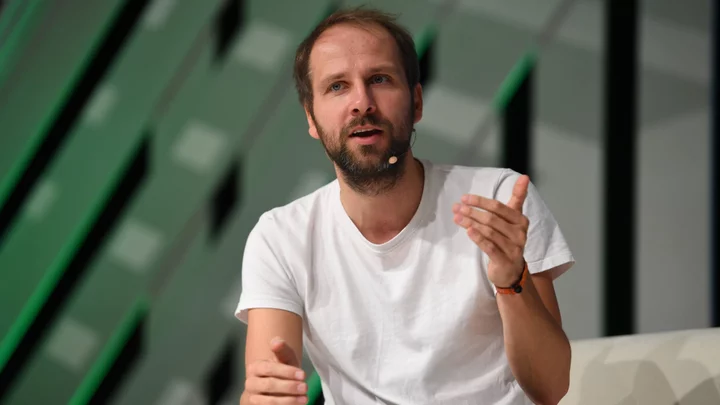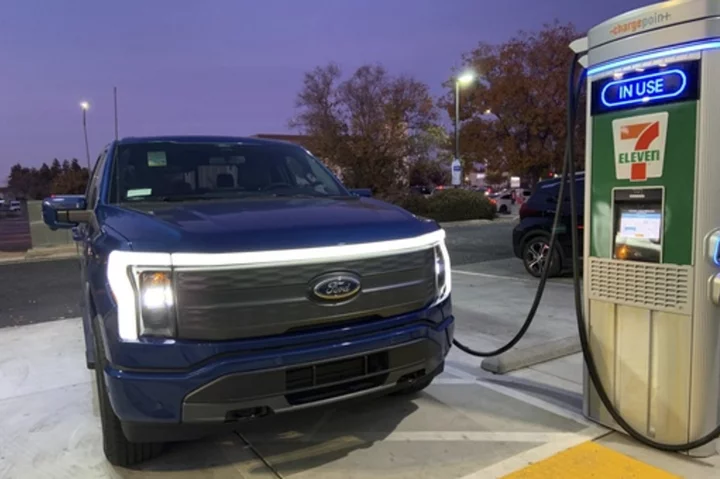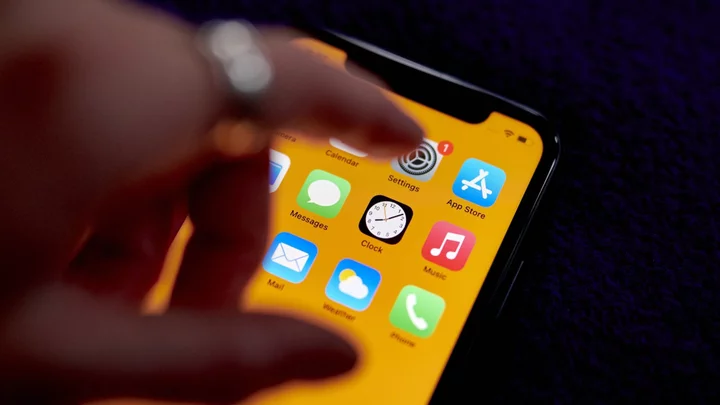LISBON—Running a green search engine can be a mean business, one where Google’s dominance of the search market is just the start of the possible challenges In an interview at the Web Summit conference here, Ecosia CEO Christian Kroll unpacked a variety of obstacles threatening his search nonprofit, which plows all of its income into tree-planting campaigns.
Search Settings Snafus
The obvious one is how non-obvious it can be to change your search default.
“It's in general still way too difficult in all browsers,” he said, naming Microsoft’s Edge as the worst. “Try to set up Ecosia in Edge; I will buy you a beer when you can get that set up successfully.”
(Later in the interview, I opened Edge on my laptop and only found the menu buried at the bottom of the “Privacy, search and services” category by searching for “search engine” in Settings; I declined the free-beer offer.)
The European Union has attempted to even the odds with such sweeping regulations as the Digital Markets Act. But while Kroll pronounced himself “very hopeful” about the DMA’s possibilities, he said one competitive remedy already active in Europe, Google’s “Choice Screen” Android interface to choose a search default, has underperformed.
“I think we're probably one of the most successful search engines in the Choice Screen,” Kroll said, but suggested that a fairer interface would have had Ecosia doing better.
He cited a European Consumer Association study released in October that found 78.4% of participants picked Google in an interface modeled after the current screen, which lists the top five search engines in randomized order and no longer requires them to pay for inclusion.
An alternative design that only showed Google alternatives on the first screen lowered Google’s share to 76.3%, while adding a step—a brief description of a search site above a “Confirm” button—dropped it to 74%. In practice, however, the Choice Screen may have had zero effect, judging from Statcounter analytics showing Google’s 96.5% share of mobile search in Europe exceeds its 94.8% share in the US.
The Rising Cost of Bing Dependence
Ecosia’s less-obvious threat emerged later in the conversation: steep rate hikes, from 357 to 1,000%, that Microsoft announced in February for various tiers of its Bing search API.
“With Microsoft releasing the new Bing and everything, they also decided for a reason that I don't yet understand to massively increase the prices of their search API,” Kroll said. “That basically meant that if you're operating a search engine running on Bing, you're bankrupt.”
Kroll said that Ecosia, “with the help of some regulators,” was able to get Microsoft to extend its existing contract. “But the problem isn't really solved, it's just postponed into the future.”
A Microsoft publicist sent a version of a reply earlier provided to other news sites, which could not be attributed to anybody by name, that said those price increases “more accurately reflect the technology investments Bing continues to make to improve Search,” citing such examples as the 2018-vintage Entity Search as well as “new AI integrations.”
In response, Ecosia is now folding in Google search results. The company announced in October that it's now an option for users in Canada, Mexico, New Zealand, and the Philippines. Kroll called Google’s rates “reasonable” but complained about a restriction in the license: “We're not allowed to use Google results within our own mobile apps.”
Google did not return a request for comment about that policy.
Some Google competitors have created their own indexes of the Web with varying levels of success—Brave Search no longer relies on Bing, but Neeva shut down in June after it couldn’t make its subscription model work. But Kroll didn’t sound optimistic about Ecosia doing the same.
“You need to have a lot of users in order to generate the data to improve your algorithm,” he said—or at least access to an established engine’s search-popularity data.
A Chatbot and Its Climate Footprint
In a Web Summit talk Thursday, Kroll walked the audience through an upcoming Ecosia AI chatbot, saying it will let the company draw on more sources and commending generative-AI chatbots in general: “They're really good at giving you one perfect answer for a really complex question.”
In our interview after that talk, Kroll said this chatbot largely relies on OpenAI’s GPT service, with some additions unique to Ecosia.
But how does a chatbot—an energy-intensive way to generate answers, owing to the large server resources required—square with Ecosia’s environmental ambitions?
Kroll said Ecosia’s tree-planting work already has the company so carbon-negative that adding chatbot sessions to its balance sheet won't matter much. He suggested one would generate at most 1 kilogram of carbon dioxide, on the lower end of some researchers’ estimates.
“The tree planting that we're doing, with each search, you’re actually removing around 50 kilograms of CO2.”
Kroll added that Ecosia continuously monitors these planting campaigns—done with local partners in such countries as Brazil, Nigeria, and Thailand.
“We really seriously look at the long-term effect of our tree planting activities,” he said. “The number that we have on our website [as of Tuesday morning, 186,728,000 and counting] is actually not the amount of trees that we put into the ground, but it's the trees surviving.”
Kroll added that this tracking includes “exact geodata” for each tree planted, with follow-up via satellite imagery and, if needed, in-person visits.
An Uncertain Future of Search and Content
Kroll’s presentation at the conference revealed another unexpected alignment with Google: He, too, thinks that the future of search will involve AI systems directly answering your query instead of pointing you to links elsewhere. As he put it: “Search engines don't show you the 10 blue links anymore but will just give you the perfect answer.”
But while Google’s sales pitch for what it calls its “Search Generative Experience” brushes off concerns about how sites will stay in business without search-engine referrals, Kroll acknowledged that the long-term outcome of this short-term convenience for search users could have grave downsides.
“I think many sites are already seeing a decline in traffic,” he said. “To be honest, I don't know how to solve this.”
He didn’t sound bullish on the idea of search sites paying news sites to index their content—a policy such countries as Canada have written into law—calling it “a huge pain” for smaller sites.
“If you're a big search engine, you can negotiate better terms and also it's easier for you to pay,” Kroll said.
But the way the market is tilted so steeply towards Google, smaller competitors face much bigger problems. Kroll’s glum summary: “The barriers to entry are so big that it's almost impossible to be successful as a search engine.”
(Disclosure: I moderated three panels at Web Summit, with the organizers covering my airfare and lodging.)









